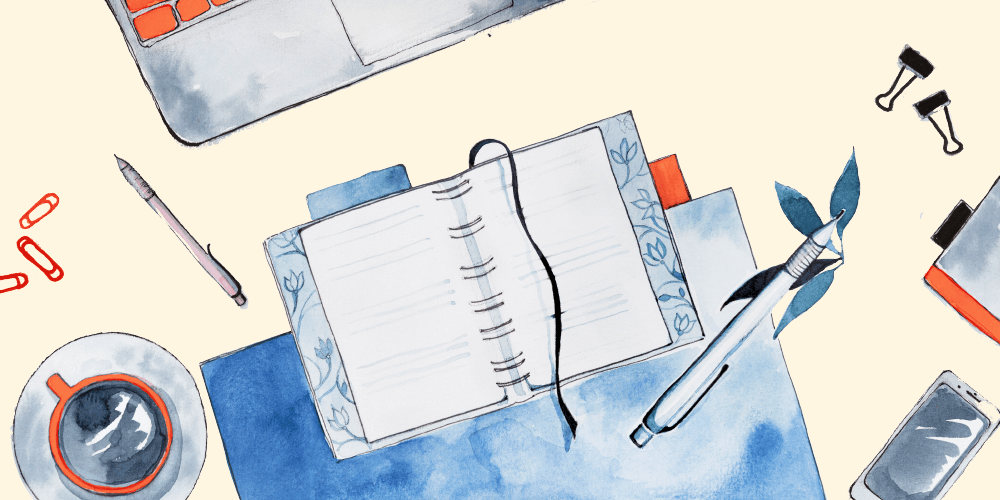On Friday, the Wall Street Journal broke the news that Apple is working a new health and journaling app, similar to the popular Day One software that Automattic (the company behind WordPress.com) acquired back in 2021.
I am a big Day One fan, both for journaling and just general writing and notetaking. And Matt Mullenweg, co-founder of WordPress and CEO of Automattic, has said that incorporating the Gutenberg editor into Day One is one of the many ways he hopes to make Gutenberg “bigger than WordPress.” (Incorporating Gutenberg into Tumblr, another recent Automattic acquistion, is being done with a similar goal in mind.)
Unfortunately for Day One and its parent company, the WSJ article was pretty much entirely about how bad the Apple announcement is for Day One. In what I consider to be a baffling PR decision, Day One founder and current Automattic employee Paul Mayne appears to have given the WSJ an interview about how horrible this is for his product’s future. (Parts of it are also in a Verge article, which is not paywalled.)
“It’s always the worst thing to have to hear that you’re about to be sherlocked,” said Paul Mayne, founder of the Day One app, when the Journal informed him of the company’s plans.
Note to self – when the Journal calls and tells you something bad and surprising, just say “no comment!”
For Mr. Mayne of Day One, the possibility of Apple entering the journaling space will mean that he will have to work to differentiate his product from the iPhone maker’s. “It will definitely give us some competition,” he said.
Founded in 2011, Day One focused its software primarily on Apple’s iPhone and Mac. It grew largely because of Apple’s support, Mr. Mayne said, being displayed on the App Store and receiving an Apple design award in 2014. He said his app has grown to more than 200,000 subscribers paying $35 a year for the premium version of the app.
About three years ago, Day One support from Apple dropped off suddenly, Mr. Mayne said. Day One wasn’t featured as prominently on the App Store as it was in the past, he said. He didn’t know why the support stopped but suspected it could be that Apple was building its own app.
What does this mean for Day One and Automattic?
On the one hand, the fact that Apple is doing this is a signal the Day One is a great idea. Unfortunately, it’s easy to get overpowered by a big competitor like Apple or Google, and Mayne is not wrong to say this is a huge problem for the company, even though it was probably bad form to say it so publicly and reveal your revenue figures at the same time.
Going forward, Automattic will have some hard choices to make about whether to change its approach with Day One – it’s already doing this in a more web-based way that is less reliant on iOS – in light of the new competition from Apple. Financially, it’s hard to see where future growth is going to come from if Apple is absorbing all the new customers with an easy-to-use, basically-built-in app. Right now, Mayne says Day One is making ~$7 million in revenue a year, but is continued growth realistic with a behemoth like Apple in the mix?
This also calls Automattic’s acquisition strategy into question – if the point is just to maintain great software, that’s one thing. But if you’re buying a company and then suddenly they head into a tailspin because of competition from Apple, that can really mess with financing, morale and the whole business model.
On the other hand, maybe they got such a deal on Day One that it doesn’t matter – after all, a source told Axios that Automattic bought Tumblr for less than $10 million. (Tumblr recently revealed – in a somewhat oblique way – that it makes about $263,000 a quarter, or roughly $1 million a year, in iOS revenue.) Even if they paid 4x revenue for Day One and we assume they were bringing in $7 million a year at the time of the acquisition, that’s roughly a $28 million acquisition – although my guess is that is much higher than reality.
In short – the question for Automattic is what this branch of their company looks like if growth falters, and what it looks like if subscriber revenue starts to shrink. Payne says the Apple issue was on the radar three years ago (presumably pre-acquisition), so it’ll be interesting to see if Automattic is surprised to be under siege by Apple or if they baked the Apple threat into their acquisition price.
Making Gutenberg ‘bigger than WordPress’ via acquisition?
I think the prospect of Apple sherlocking Day One also reveals the inherent flaws in Mullenweg’s apparent strategy of expanding the reach of the Gutenberg editor via acquisition. There’s just only so much you can do to game the numbers by buying fading social networks and installing Gutenberg on them. (Tumblr was valued at $1.1. billion two years before Automattic bought it for a reported $10 million!) I fear that the Day One acquisition – while, again, it’s great software – may also have been a misguided attempt to get Gutenberg into more software more quickly.
Meanwhile, WordPress.com and WordPress VIP continue to be the crown jewels of the Automattic portfolio – but even so, the intense focus on market share has become a psychological liability for the company, since WordPress can’t possibly continue its rapid growth forever.
If Mullenweg and Automattic want to create a company goal of making Gutenberg bigger than WordPress, that’s cool. The software has come a long way in the past year, but ultimately, the path to a larger market share is to make high-quality software that people actually want to integrate into their non-WordPress tools. Simply buying software and converting it to Gutenberg isn’t a viable path forward.


